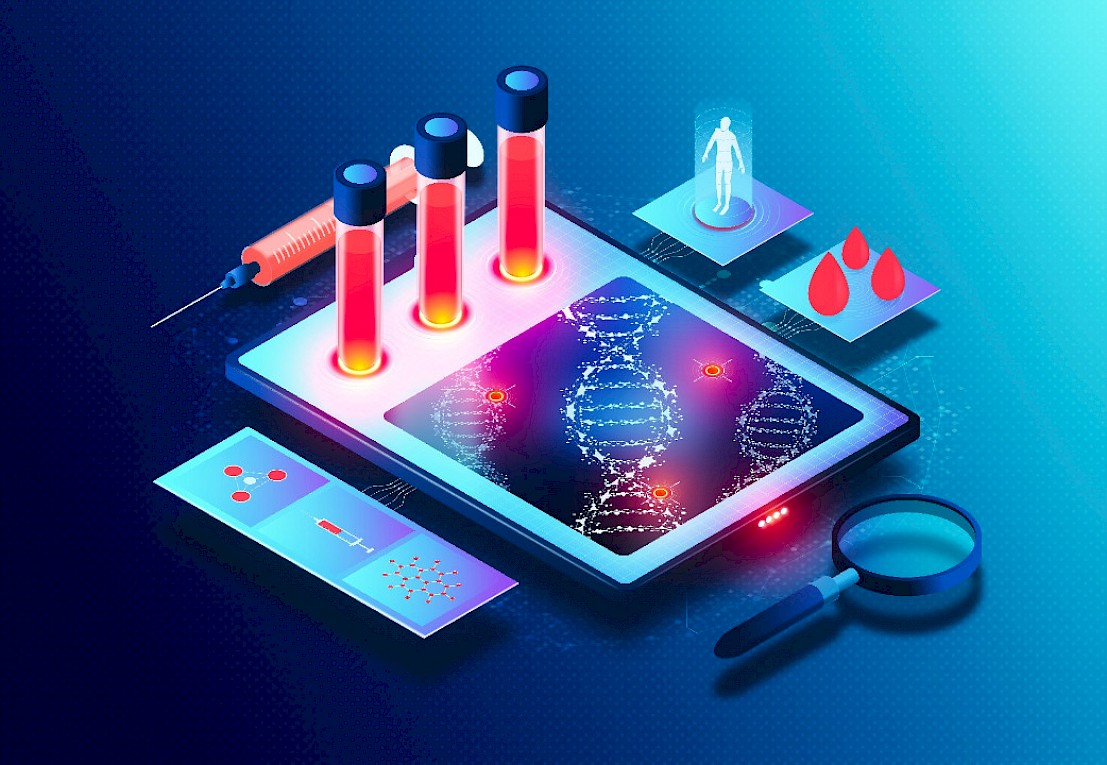Liquid biopsies promise to detect cancer earlier, identify recurrences and tell us how to treat patients – but is this all just too good to be true?

You can book for in-person attendance at Bookwhen, where you will also find the link for Zoom viewing.
Cancers release small fragments of DNA into the blood. These fragments, called ctDNA, can be distinguished from other cell-free DNA and used both to detect cancer and to understand its biology, in effect giving us a blood test for cancer. Implementing such tests poses many problems, particularly if they are to be used as a screening tool in the ostensibly healthy population. The talk will briefly cover the principles behind ctDNA detection before considering how different tests might best be used in cancer care: to detect cancers earlier, to diagnose cancer, to replace scans in monitoring patients and to identify targets for treatment. We will cover clinical trials using ctDNA tests in the NHS and consider where these might take clinical practice in the next decade. We will also consider the barriers to implementation and the potential pitfalls of adopting these tests.
Professor Mark Middleton, University of Oxford Department of Oncology; Cancer Research UK Oxford Centre

Mark is Director of the CRUK Oxford Centre and Head of Oncology at the University of Oxford, where he founded the Early Phase Clinical Trials Unit. He trained in medicine and cricket at Gonville and Caius College, Cambridge before defecting to Oxford. He did his PhD in Oncology at the Christie Hospital and University of Manchester. His clinical and research interests are in new cancer drug development and the treatment of upper GI cancers and melanoma. Mark has been Chief or Principal Investigator on >100 trials and closely involved in the development of new treatments including DNA repair, immune checkpoint and kinase inhibitors, ImmTACs and oncolytic viruses.
Attending lectures
Full video
The lecture will be preceded by a short presentation from a CSAR PhD Award Winner.
Lithium-sulfur batteries as next generation energy storage solution
Dr. Ismail Sami, Cambridge University Department of Materials Science; Research Fellow, Faraday Institution; Technical Lead, Henry Royce Battery Suite.
Full video
Thank you for your interest in CSAR and its programme. If you would like to help us maintain our activities at their current level, you can make a donation to CSAR here, via PayPal or a bank card. Your gift will by default go into our general income fund; if you would like it to be used for a specific purpose such as the PhD Students Awards scheme, please let us know at info@csar.org.uk. CSAR is a registered charity run by volunteers.